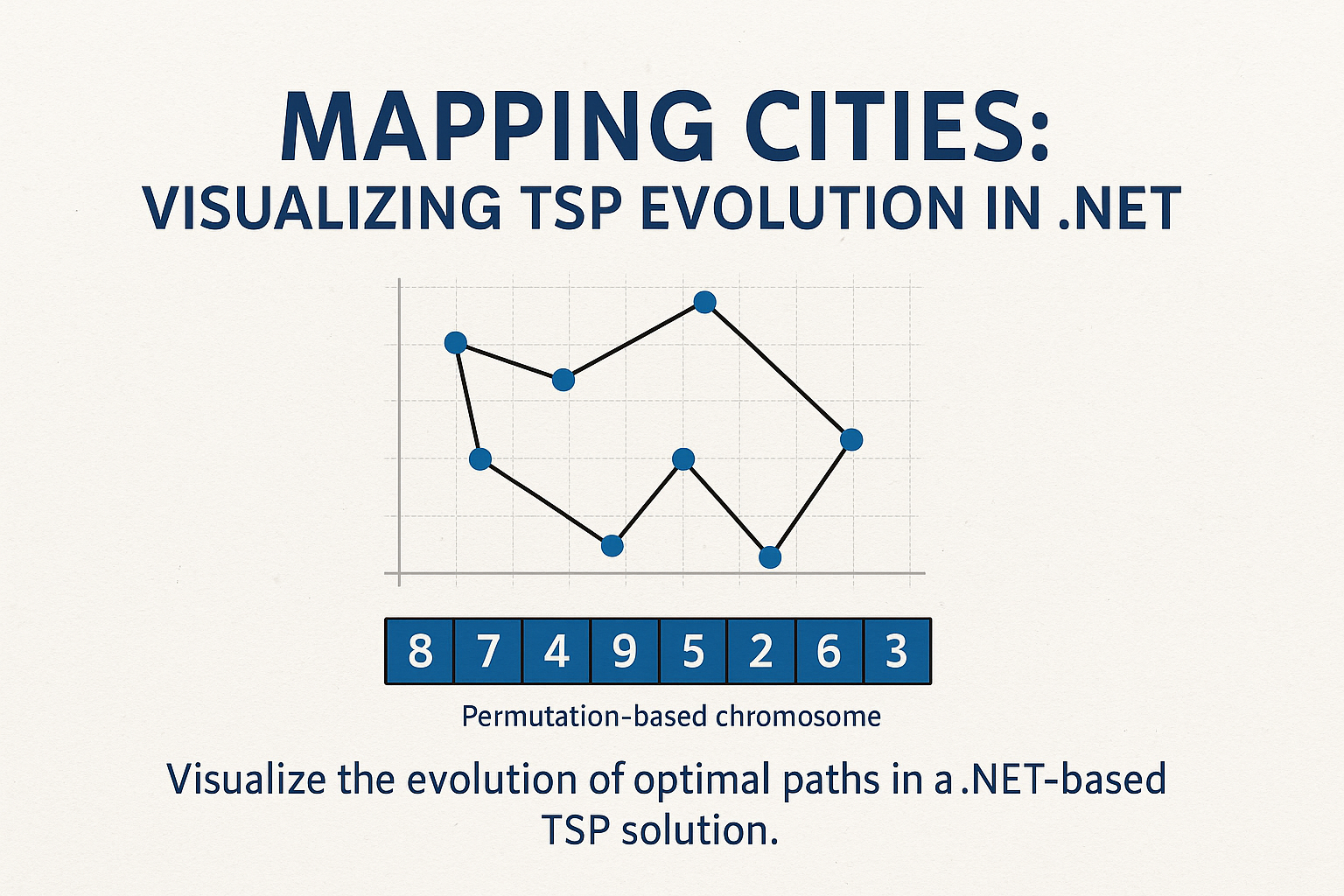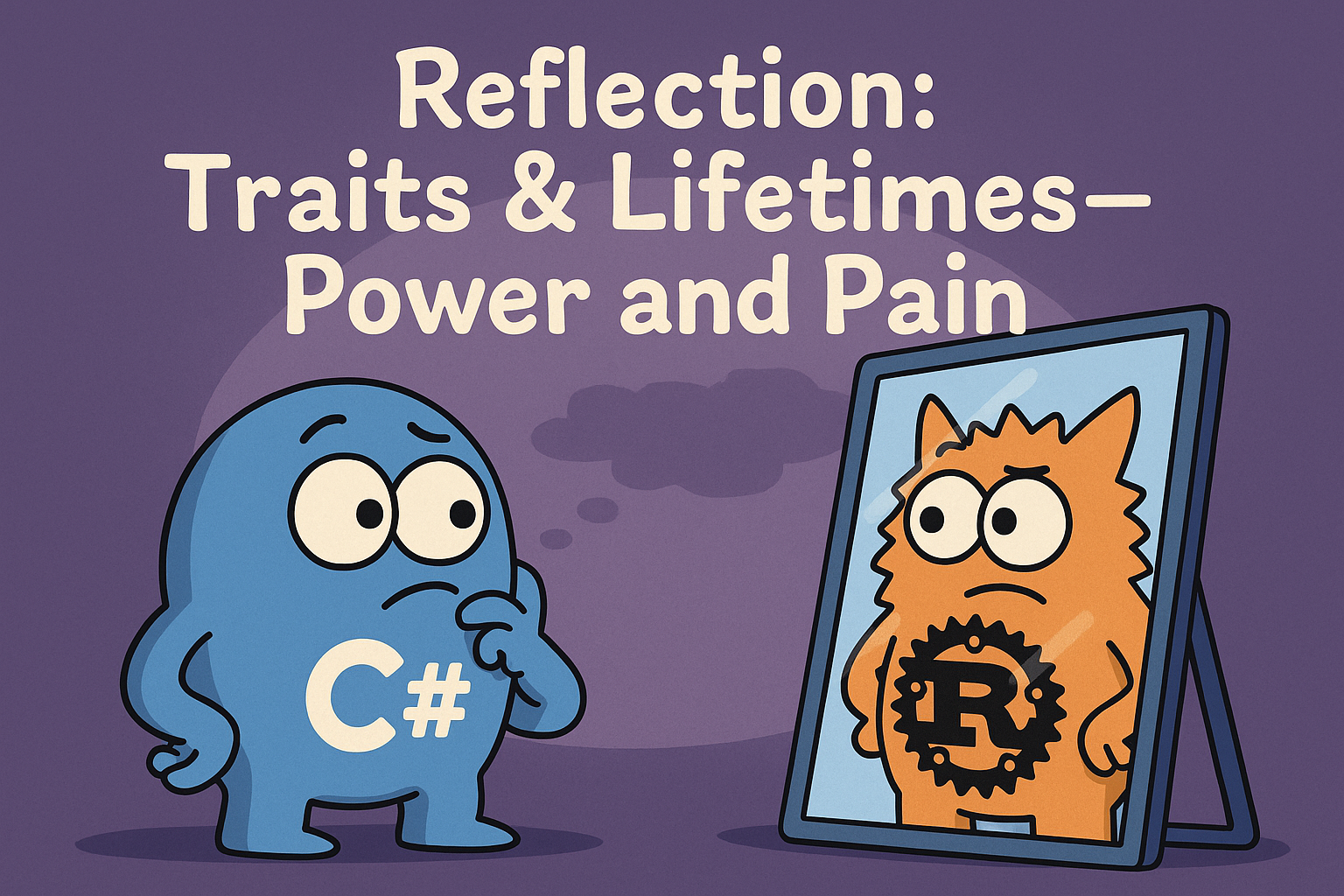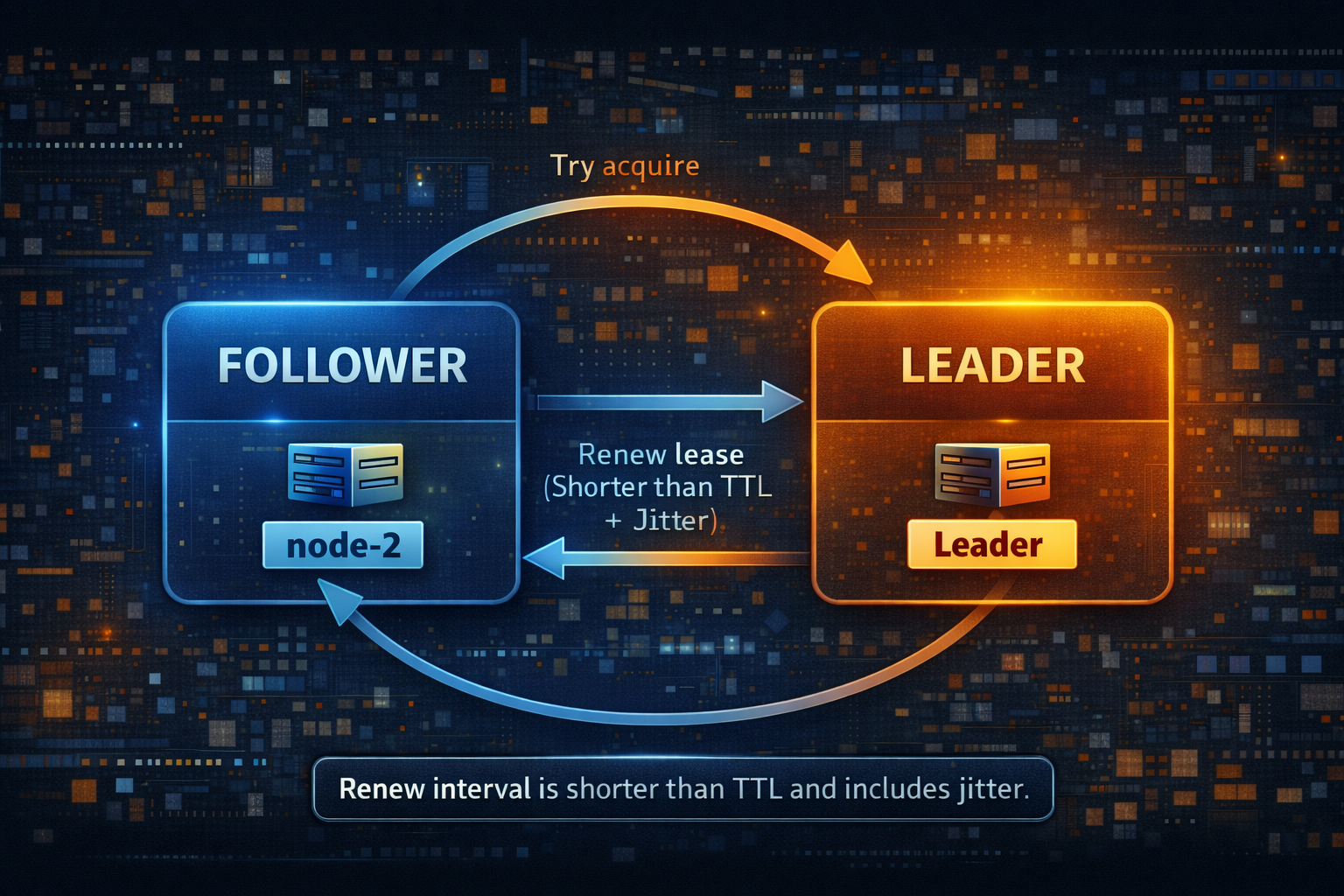
Exploring Programming Paradigms: C# and Rust Side by Side
- Chris Woodruff
- January 18, 2025
- Rust
- .NET, C#, dotnet, programming, rust
- 1 Comment
Posts in this Series on Rust for C# Developers
- Part 1: Why Every C# Developer Should Explore Rust
- Part 2: Exploring Programming Paradigms: C# and Rust Side by Side
- Part 3: Syntax Smackdown: Comparing Constructs in C# and Rust
- Part 4: Memory Wars: Garbage Collection in C# vs. Ownership in Rust
- Part 5: Threads, Tasks, and Ownership: C# and Rust Concurrency Explored
- Part 6: Building with .NET and Rust: A Tale of Two Ecosystems
- Part 7: Level Up Your Skills: Learning Rust as a C# Dev
- Part 8: Rust’s Superpower: Speed Meets Smarts
When it comes to programming languages, each has its quirks, strengths, and unique ways of looking at the world. Think of them as different superheroes with distinct powers. C# is your reliable, well-rounded champion of object-oriented programming (OOP), while Rust is the fearless defender of memory safety and performance. So, how do these two stack up when it comes to their paradigms? Let’s find out!
Object-Oriented Programming (OOP)
C#: The Classic Hero of OOP
C# thrives in the OOP world. With its rich support for classes, inheritance, and interfaces, it’s designed to encapsulate data and behavior neatly. Need a blueprint for an object? C# has you covered. Here’s a quick example:
public class Car
{
public string Make { get; set; }
public string Model { get; set; }
public Car(string make, string model)
{
Make = make;
Model = model;
}
public void Drive()
{
Console.WriteLine($"Driving a {Make} {Model}!");
}
}
With inheritance, polymorphism, and interfaces, C# makes OOP feel natural and intuitive. It’s like driving a car with all the modern bells and whistles—smooth and predictable.
Rust: OOP, But With a Twist
Rust supports OOP principles, but it’s not your typical OOP language. Forget traditional classes and inheritance—Rust does things its own way using structs and traits. Here’s a taste of how it works:
struct Car {
make: String,
model: String,
}
impl Car {
fn new(make: &str, model: &str) -> Self {
Car {
make: make.to_string(),
model: model.to_string(),
}
}
fn drive(&self) {
println!("Driving a {} {}!", self.make, self.model);
}
}
Rust emphasizes composition over inheritance. Traits define shared behaviors that structs can implement, giving you a flexible yet powerful way to design your code. It’s like driving a manual transmission—you have more control but need to pay closer attention.
Functional Programming (FP)
Both C# and Rust dabble in functional programming but take different approaches.
C#: LINQ-ing It Up
C# shines with tools like LINQ, lambda expressions, and higher-order functions. These make it easy to manipulate collections and embrace FP concepts:
var numbers = new[] { 1, 2, 3, 4, 5 };
var squares = numbers.Select(n => n * n);
foreach (var square in squares)
{
Console.WriteLine(square);
}
With LINQ, functional programming feels right at home in C#.
Rust: Immutability and Pattern Matching
Rust leans heavily into immutability and pattern matching. It’s FP with a focus on safety and clarity:
let numbers = vec![1, 2, 3, 4, 5];
let squares: Vec<i32> = numbers.iter().map(|n| n * n).collect();
for square in squares {
println!("{}", square);
}
Rust’s approach to FP feels deliberate and robust. Pattern matching, in particular, is a joy to use and makes the code expressive and concise.
Concurrency: The Final Frontier
C#: Threads, Tasks, and Async/Await
Concurrency in C# is all about tasks and async/await. It’s straightforward and powerful:
async Task FetchDataAsync()
{
Console.WriteLine("Fetching data...");
await Task.Delay(1000);
Console.WriteLine("Data fetched!");
}
C# makes asynchronous programming approachable, but you must watch out for pitfalls like deadlocks or race conditions.
Rust: Fearless Concurrency
Rust’s concurrency model is built on its ownership system. It ensures data races are caught at compile time. Here’s a simple example:
use std::thread;
let handle = thread::spawn(|| {
println!("Hello from a thread!");
});
handle.join().unwrap();
With traits like Send and Sync, Rust makes sure your code is thread-safe by design. It’s like having a seatbelt that won’t let you start the car until everything is secure.
The Verdict
C# and Rust approach paradigms differently, but both are incredible tools for the right job. C# excels in enterprise applications, where OOP and productivity shine. On the other hand, Rust thrives in performance-critical, system-level programming with its unique take on safety and control.
So, why not have both in your toolbox? Each language can teach you new ways to think about programming—and that’s always a win.
What do you think? Are you ready to embrace Rust’s quirks and join the fearless programming revolution? Let us know in the comments below!







Abhijeet Haval
I am C# developer. Eager to learn Rust